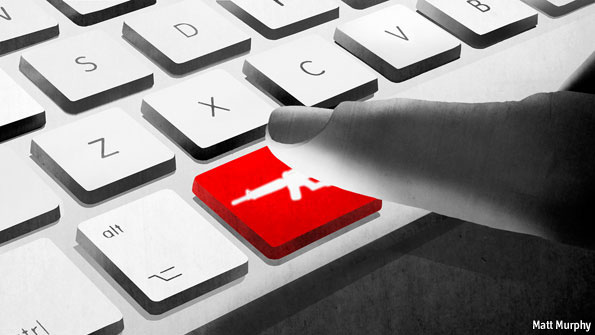
From Bruce Schneier, the Financial Times: The world is gearing up for cyberwar. The US Cyber Command became operational in November. Nato has enshrined cyber security among its new strategic priorities. The head of Britain’s armed forces said recently that boosting cyber capability is now a huge priority for the UK. And we know China is already engaged in broad cyber espionage attacks against the west. So how can we control a burgeoning cyber arms race? …
We can set parameters. It is obviously not an act of war just to develop digital weapons targeting another country. Using cyber attacks to spy on another nation is a grey area, which gets greyer still when a country penetrates information networks, just to see if it can do so. Penetrating such networks and leaving a back door open, or even leaving logic bombs behind to be used later, is a harder case – yet the US and China are doing this to each other right now. …
A first step would be a hotline between the world’s cyber commands, modelled after similar hotlines among nuclear commands. This would at least allow governments to talk to each other, rather than guess where an attack came from. More difficult, but more important, are new cyberwar treaties. These could stipulate a no first use policy, outlaw unaimed weapons, or mandate weapons that self-destruct at the end of hostilities. The Geneva Conventions need to be updated too.
The writer is author of ‘Beyond Fear: Thinking Sensibly about Security in an Uncertain World.’ (graphic: Matt Murphy/Economist)
Image: economist%207%203%2010%20cyber%20threat%20Matt%20Murphy_0.jpg
